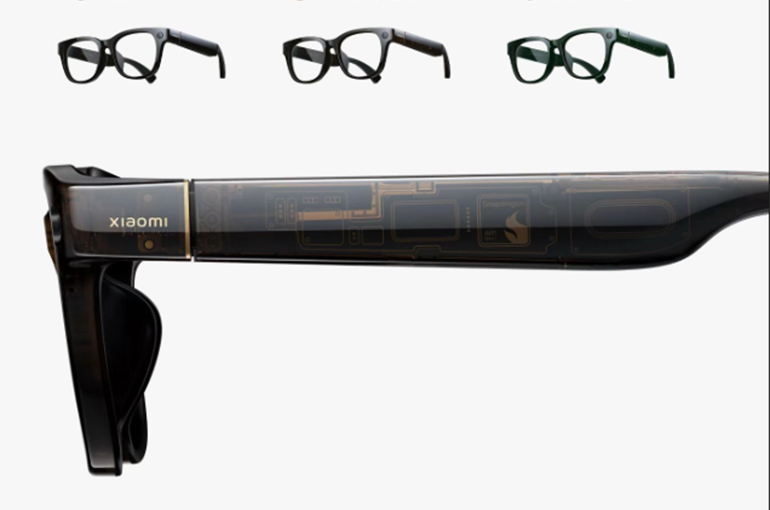 China's Xiaomi Launches AI Glasses Rivaling Ray-Ban Meta
China's Xiaomi Launches AI Glasses Rivaling Ray-Ban Meta(Yicai) June 27 -- Chinese electronics giant Xiaomi released its first artificial intelligence-powered smart glasses, with features rivaling those of market leader Ray-Ban Meta, which is not available in China.
The Xiaomi AI glasses are priced from CNY1,999 to CNY2,999 (USD280 to USD420), the Beijing-based company said at a launch event yesterday. Equipped with a 12-megapixel high-definition optical camera, users can take first-person pictures and clips with the help of the Super XiaoAi voice assistant and use real-time translation through third-party apps.
The new glasses support video recordings of up to 10 minutes and can be paired with smartphones for video calls on Tencent Holdings' super app WeChat and livestreaming on various platforms. In addition, users can interact with Xiaomi Smart Home devices.
The Xiaomi AI glasses are a personal intelligent device for the next era and a portable entry point for AI, said founder Lei Jun.
The pre-installed Super XiaoAi supports full voice interaction and offers various functions, including encyclopedic questions and answers, translation, meeting notes, and QR code payment. The translation feature supports mutual translation between 10 languages.
Mark Zuckerberg, chairman and chief executive of Meta Platforms, previously referred to 2025 as the "decisive year for AI glasses," and Xiaomi's entry will likely heat up competition in the market. More than a dozen firms, including Alibaba Group Holding and Samsung Group, are expected to launch new products in the second half of this year, with Meta likely to release several AI smart glasses next quarter.
Xiaomi's entry will accelerate market education and adoption, Wang Zixin, an analyst at Runto Technology, said to Yicai. The firm is replicating the ecosystem competition model it established in the smartphone sector, which will encourage tech giants with similar advantages, including Huawei Technologies, Apple, and Samsung, to expedite their market strategies, Wang pointed out.
The pain point in the AI glasses market is the lack of a robust ecosystem to support content produced with such products. One of the main reasons Meta's glasses sell best is that they can seamlessly connect with its social media ecosystem, allowing users to easily upload images on social media platforms such as Instagram.
Xiaomi's "Human x Car x Home" smart ecosystem can become a competitive advantage for its AI glasses.
Global sales of AI smart glasses surged 216 percent to 600,000 units in the three months ended March 31 from a year earlier, mainly boosted by Ray-Ban Meta, according to data from Wellsenn XR.
The price will determine short-term sales of the Xiaomi AI glasses, noted Sun Yanbiao, chairman of think tank Chaodian. "However, whether it's Meta or Xiaomi, their AI glasses are essentially still in a 'half toy, half tool' development stage, with the tool attribute accounting for 30 percent to 40 percent."
Editor: Martin Kadiev